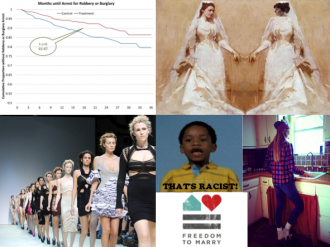
New & Noteworthy
Richie Zweigenhaft published a new TSP Special on the race and gender of people holding fortune corporate board seats. Comparing 2011 to 2023, Zweigenhaft found that white men have gone from about 2/3 majority to slightly less than 1/2 minority. Read the special here, and the full article here.
This week’s TSP clippings includes Eric Klinenberg on MSNBC’s Why Is This Happening? The Chris Hayes Podcast and in The New Yorker to discuss his new book 2020: One City, Seven People, and the Year Everything Changed, Elizabeth Wrigley-Field in the StarTribune following new research by Wrigley-Field and colleagues that suggests ‘excess deaths’ (the number of deaths over the average expected deaths in a time period), Emine Fidan Elcioglu was interviewed by The Trace about her research examining a southwest border militia group that supplied information on migration routes to the U.S. Border Patrol, and Surinder S. Jodhka in IndiaSpend on India’s caste system fueling social exclusion.
From the Archives
Justice Alito made some controversial statements about same-sex marriage. Read our ‘There’s Research on That’ by Caity Curry and Allison Nobles to learn about some of the complexities surrounding LGBT parents.
Less than a week ago there was a Neo-Nazi rally in downtown Nashville. Learn about some similarities between 1930s Germany and the U.S. today by reading this piece from the Center for Holocaust and Genocide Studies.
More from our Partners & Community Pages
Contexts Latest pieces include:
- Sophie X. Liu on some of the financial and social complexities of the legalization of cannabis in California.
- Katie Mercer and Stefanie Mollborn on the class differences of distancing during COVID-19 and affluent communities’ perceptions of their moral superiority through privilege.
Council on Contemporary Families has several new pieces including:
- Bethany Everett writes on some of the State-Level protections for infant and maternal health of the LGBT community.
- Marcus Maloney and Kate Babin cover some of the implications of Andrew Tate and the appeal of the manosphere.
- Lauren E. Harris covers her research on older adult dating during COVID-19 and interviews with 100 single adults ages 60-83.
The Center for Holocaust and Genocide Studies posted Professor John Packer‘s annual Holocaust Remembrance Day Lecture, titled “Remembering, Learning, and Applying ‘Never Again’ as the Essential Lesson of the Holocaust.”


